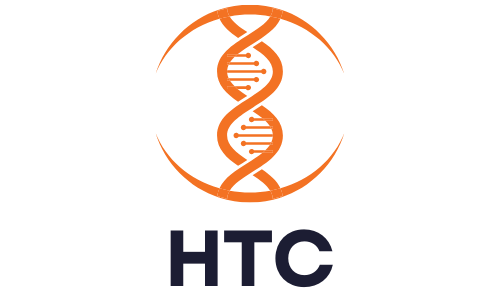The Future of Genomic Medicine: Investment Insights
Genomic medicine, a rapidly evolving field, holds immense potential to revolutionize healthcare by providing precise, personalized medical treatments. With advancements in gene editing, sequencing, and bioinformatics, genomic medicine is set to transform how diseases are diagnosed, treated, and prevented. As such, investing in genomic medicine presents a unique opportunity to be part of a transformative wave in healthcare innovation. This blog aims to provide comprehensive investment insights into the burgeoning field of genomic medicine.
Genomic medicine is an interdisciplinary field that uses genomic information about an individual as part of their clinical care. It involves the study of genes and their functions, the use of genetic information in the diagnosis and treatment of diseases, and the development of targeted therapies based on genetic profiles.
Key Components and Technologies Involved
- Gene Editing: Technologies like CRISPR-Cas9 have revolutionized the ability to modify genes with high precision. Gene editing allows for the correction of genetic defects, the study of gene functions, and the development of new treatments. CRISPR-Cas9, in particular, has been a groundbreaking tool, allowing scientists to cut DNA at specific locations and modify genes efficiently and accurately.
- Sequencing: Next-generation sequencing (NGS) technologies have dramatically reduced the cost and time required to sequence an individual's genome. Whole genome sequencing and targeted sequencing are now more accessible, providing critical insights into genetic variations and their association with diseases. These technologies enable the identification of genetic mutations that may contribute to diseases, allowing for earlier diagnosis and personalized treatment plans.
- Bioinformatics: This involves the use of software tools and computational methods to analyze and interpret genomic data. Bioinformatics is essential for managing the massive amounts of data generated by genomic studies and turning it into actionable medical insights. Advanced algorithms and machine learning techniques are used to analyze genetic data, identify patterns, and predict disease risks and treatment responses.
Examples of Genomic Medicine Applications
- Cancer Treatment: Personalized cancer therapies are developed based on the genetic profile of a patient's tumor, allowing for targeted treatment that is more effective and has fewer side effects. For example, therapies targeting specific genetic mutations in breast cancer, such as HER2-positive breast cancer, have significantly improved patient outcomes.
- Rare Genetic Disorders: Genomic medicine enables the identification of genetic mutations responsible for rare disorders, facilitating early diagnosis and the development of tailored therapies. For instance, identifying the genetic cause of cystic fibrosis has led to the development of specific treatments targeting the defective CFTR gene.
- Pharmacogenomics: The study of how genes affect a person's response to drugs, allowing for personalized medication plans that maximize efficacy and minimize adverse effects. For example, genetic testing can determine how a patient metabolizes certain drugs, enabling doctors to choose the most effective medication and dosage.
Benefits of Genomic Medicine
Genomic medicine offers several significant benefits, including improved diagnosis and treatment, enhanced precision in medicine, and cost savings through resource optimization.
Improved Diagnosis and Treatment of Genetic Diseases
Genomic medicine allows for the precise identification of genetic mutations that cause diseases. This leads to earlier and more accurate diagnoses, which are crucial for effective treatment. For instance, identifying BRCA mutations in breast cancer patients can guide more personalized treatment plans, improving outcomes and survival rates. Early diagnosis also enables the implementation of preventive measures, reducing the risk of disease development.
Enhanced Precision and Personalized Medicine
By understanding the genetic basis of diseases, treatments can be tailored to the individual, ensuring that therapies are more effective and have fewer side effects. This precision approach moves away from the one-size-fits-all model of healthcare, providing a more customized and effective treatment strategy for each patient. Personalized medicine can lead to better patient adherence to treatment plans and improved overall health outcomes.
Cost Savings and Resource Optimization
Early diagnosis and personalized treatments reduce the need for extensive and often expensive diagnostic tests and treatments. This not only lowers healthcare costs but also optimizes the use of medical resources, leading to more efficient healthcare delivery. By preventing disease progression and reducing hospitalizations, genomic medicine can significantly decrease healthcare expenditures.
Case Studies of Genomic Medicine Solutions
Case Study 1: CAR-T Cell Therapy for Cancer
CAR-T cell therapy is a groundbreaking treatment that involves modifying a patient's T cells to express a receptor specific to cancer cells. This personalized therapy has shown remarkable success in treating certain types of leukemia and lymphoma, offering hope for patients who have not responded to traditional treatments. The development and commercialization of CAR-T therapies highlight the potential of genomic medicine to revolutionize cancer treatment. In clinical trials, CAR-T cell therapy has demonstrated high remission rates in patients with relapsed or refractory B-cell acute lymphoblastic leukemia (ALL) and diffuse large B-cell lymphoma (DLBCL).
Case Study 2: Whole Genome Sequencing for Rare Disease Diagnosis
The use of whole genome sequencing in diagnosing rare genetic disorders has led to significant breakthroughs. For example, in cases where patients have undergone numerous unsuccessful diagnostic tests, whole genome sequencing has been able to identify the genetic cause of the disorder, enabling targeted treatments and improving patient outcomes. This approach has been particularly beneficial for children with undiagnosed genetic conditions, providing answers and treatment options where none previously existed. In one study, whole genome sequencing identified the genetic basis of a rare neurological disorder, leading to a tailored treatment plan that significantly improved the patient's quality of life.
Lessons Learned from Case Studies
These case studies demonstrate the transformative impact of genomic medicine on patient care. Key lessons include the importance of integrating genomic data into clinical practice, the need for interdisciplinary collaboration, and the value of continued investment in genomic technologies to drive innovation and improve health outcomes. Successful implementation of genomic medicine requires collaboration among geneticists, clinicians, bioinformaticians, and other healthcare professionals.
Challenges and Risks
While genomic medicine holds great promise, several challenges and risks need to be addressed to realize its full potential.
- Technical Challenges: The complexity of the human genome and the vast amount of data generated by genomic studies present significant technical challenges. Ensuring the accuracy and reliability of genomic data is crucial for effective clinical application. Developing robust bioinformatics tools and algorithms to handle and interpret this data is essential.
- Regulatory and Compliance Hurdles: The regulatory landscape for genomic medicine is still evolving. Ensuring compliance with existing regulations and adapting to new ones can be a significant challenge for companies in this field. Regulatory agencies must balance the need for rigorous oversight with the flexibility to accommodate rapidly advancing technologies.
- Ethical and Privacy Concerns: The use of genetic information raises ethical questions and concerns about patient privacy. It is essential to have robust policies and practices in place to protect patient data and address ethical issues. Informed consent, data security, and the potential for genetic discrimination are critical considerations.
To overcome these challenges, companies and researchers must focus on developing robust data management systems, adhering to regulatory requirements, and establishing clear ethical guidelines. Collaboration with regulatory bodies, healthcare providers, and patient advocacy groups is essential to navigate these challenges effectively. Investing in cybersecurity measures to protect genetic data and educating patients about the benefits and risks of genomic testing can also help address privacy concerns.
Investing in genomic medicine offers a unique opportunity to be part of a transformative movement in healthcare. By supporting companies and technologies in this field, investors can contribute to the development of groundbreaking treatments and the advancement of personalized medicine. As the field continues to evolve, the potential for positive impact on patient care and healthcare systems is immense, making genomic medicine a compelling area for investment. Companies like Notable Labs, which are at the forefront of integrating precision medicine into healthcare, demonstrate the profound impact that genomic medicine can have on improving health outcomes and making personalized healthcare a reality for all patients.
Investment Opportunities in Genomic Medicine
Investors should look for companies with strong scientific foundations, innovative technologies, and a clear path to commercialization. Key areas of interest include companies specializing in gene editing, sequencing technologies, bioinformatics, and personalized medicine. Companies with a track record of successful clinical trials and partnerships with academic institutions and healthcare providers are particularly attractive.
- Scientific Validity: Ensure that the company's technology is based on solid scientific principles and has been validated through rigorous research. Peer-reviewed publications and clinical trial results can provide evidence of scientific credibility.
- Regulatory Pathway: Assess the company's strategy for navigating regulatory approvals and compliance. Companies with a clear regulatory pathway and experience in securing approvals are better positioned for success.
- Market Potential: Consider the potential market size and the company's ability to capture market share. Assess the unmet medical needs that the company's technology addresses and the competitive landscape.
Partnerships and Collaborations: Companies with strong partnerships and collaborations with academic institutions, healthcare providers, and other industry players are likely to have a competitive advantage. Strategic alliances can enhance a company's research capabilities and accelerate product development.
Investing in genomic medicine can be approached with both long-term and short-term strategies. Long-term investments involve backing companies with promising technologies that may take years to fully develop and commercialize. These investments require patience but can yield substantial returns as the technology matures and gains market acceptance. Short-term strategies may focus on companies with near-term catalysts, such as upcoming clinical trial results or regulatory approvals, which can drive stock price appreciation.
Future Trends and Innovations
- Integration of AI and Machine Learning: AI and machine learning are increasingly being used to analyze genomic data, identify patterns, and develop predictive models. This integration is expected to enhance the precision and efficiency of genomic medicine. AI algorithms can help identify genetic variants associated with diseases and predict patient responses to treatments.
- Expansion of CRISPR and Gene Editing Technologies: Advances in gene editing technologies, particularly CRISPR, are opening new avenues for treating genetic disorders. Ongoing research aims to improve the accuracy and safety of these technologies, broadening their applications. Researchers are exploring CRISPR-based therapies for conditions such as sickle cell disease, muscular dystrophy, and HIV.
- Growth of Direct-to-Consumer Genetic Testing: The direct-to-consumer genetic testing market is expanding, providing individuals with access to their genetic information and promoting awareness of genetic health. Companies like 23andMe and AncestryDNA offer genetic testing services that provide insights into ancestry, health risks, and traits. This trend is driving consumer engagement and interest in genomic medicine.
- Personalized Vaccines: The development of personalized vaccines based on an individual's genetic profile is a promising area of research. These vaccines could offer more effective protection against infectious diseases and cancer. Personalized cancer vaccines, for example, are designed to target specific neoantigens unique to a patient's tumor, enhancing the immune response.
Technological advancements are driving the rapid evolution of genomic medicine. Improvements in sequencing technologies, bioinformatics tools, and data analytics are making it easier to collect, analyze, and interpret genomic data. These advancements are accelerating the pace of discovery and enabling the development of more targeted and effective treatments. High-throughput sequencing technologies, such as Illumina's NovaSeq, are reducing the cost and time required for genomic analysis, making it more accessible for clinical use.
Over the next decade, we can expect significant advancements in genomic medicine, including:
- Widespread Adoption of Genomic Testing: Genomic testing will become a routine part of medical care, enabling personalized treatment plans for a wide range of diseases. As the cost of sequencing continues to decrease, more healthcare providers will integrate genomic testing into standard practice.
- Breakthroughs in Gene Therapy: Gene therapy will continue to advance, offering potential cures for previously untreatable genetic disorders. Researchers are developing novel gene therapy approaches, such as base editing and prime editing, to precisely correct genetic mutations.
Integration with Other HealthTech Innovations: Genomic medicine will increasingly integrate with other HealthTech innovations, such as digital health tools, wearables, and telemedicine, to provide comprehensive, personalized healthcare solutions. Wearable devices that monitor vital signs and health metrics can complement genomic data to provide a holistic view of a patient's health.
Conclusion
Genomic medicine holds immense potential to revolutionize healthcare by providing precise, personalized treatments based on an individual's genetic profile. Advances in gene editing, sequencing, and bioinformatics are driving this transformation, offering significant benefits in terms of improved diagnosis and treatment, enhanced precision in medicine, and cost savings. Case studies of CAR-T cell therapy and whole genome sequencing highlight the real-world impact of genomic medicine on patient care.
The field of genomic medicine is poised for remarkable growth, with ongoing research and technological advancements paving the way for new discoveries and innovations. By investing in genomic medicine, stakeholders can play a crucial role in shaping the future of healthcare and improving patient outcomes. The integration of AI and machine learning, the expansion of gene editing technologies, and the growth of direct-to-consumer genetic testing are driving the field forward.










